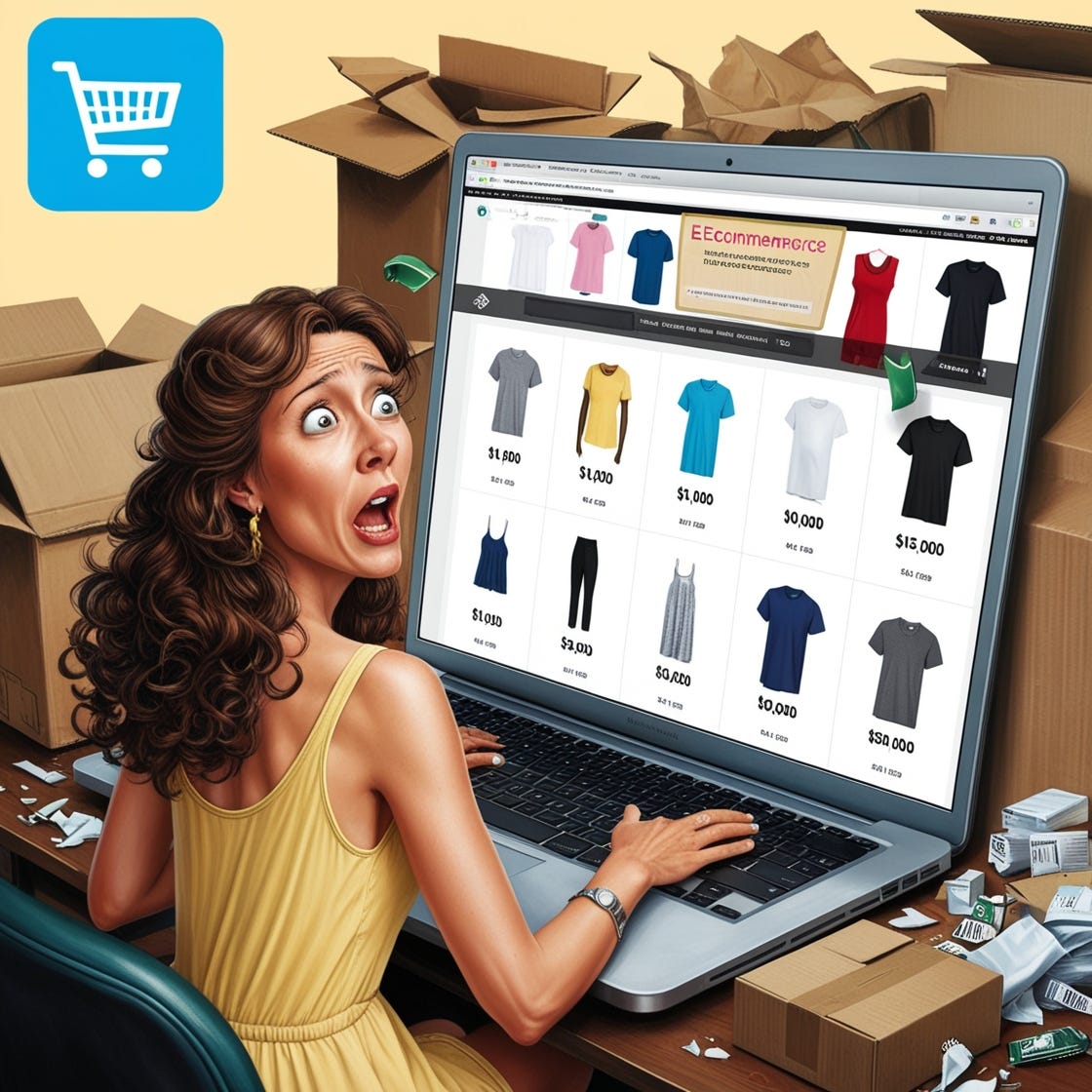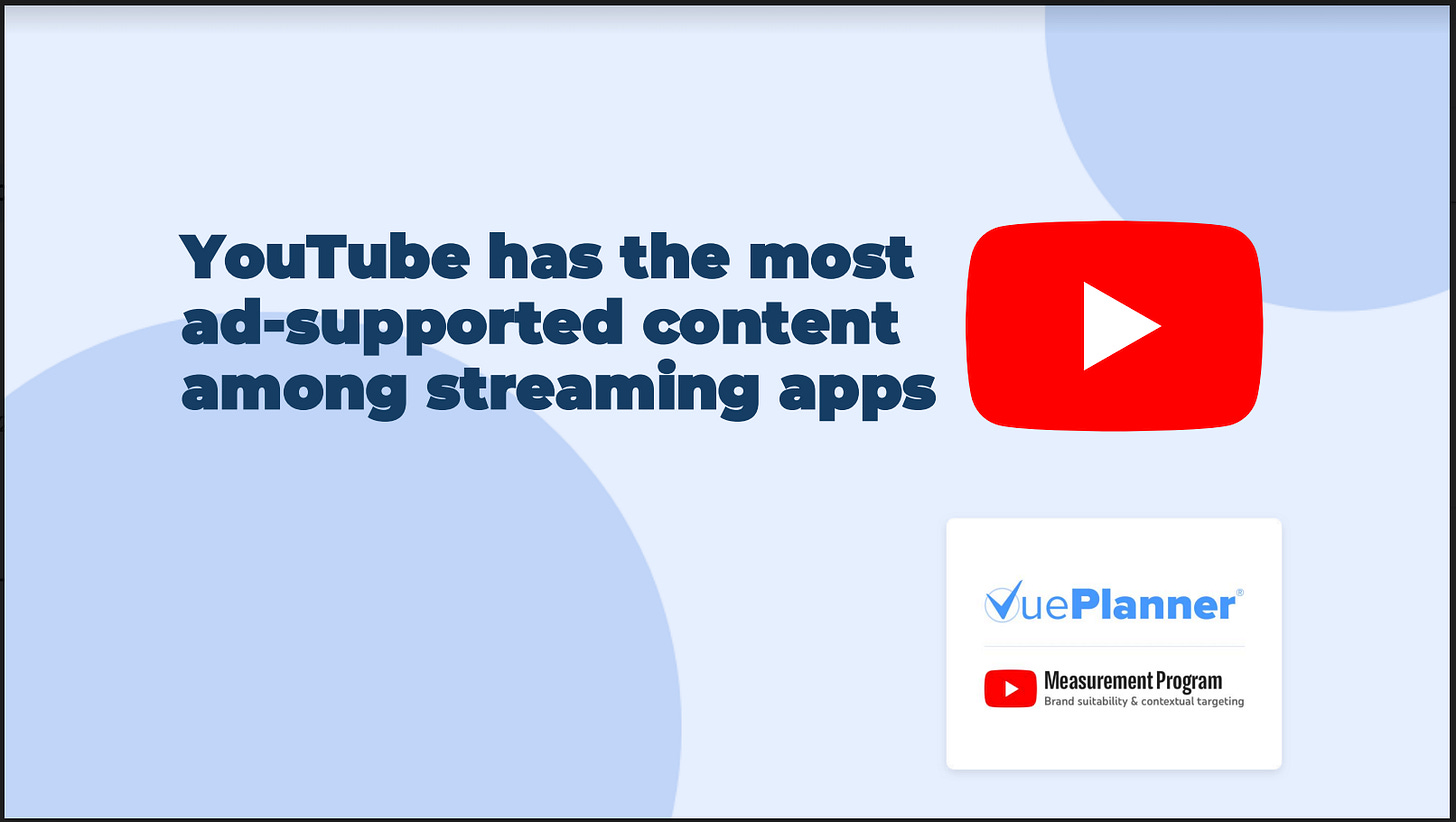'Everything is Shoppable!' Meets The Tariff Economy
Could Trump upend the retail media rocket ship?
First, a few quick housekeeping items:
My friend and longtime ad industry consultant Emily Riley and I are trying an experimental podcast. In addition to my regular weekly interview show, she and I are looking to review (and maybe debate) the biggest stories in ads and media each week. We’re debating whether this should be a Friday or a Monday thing. Anyway, check out the first episode here, tell us what you think, and reach out if you want to sponsor.
Next in Media is looking for podcast and newsletter sponsors, and is open for business for special Cannes activations. Shoot me a note if you’re interested at mike@shieldsstrategic.com.
A bit of news caught my eye this week, as we all grapple to make sense of the insanity of the stock market and contemplate whether we should just move into manufacturing:
Uber made a deal with Instacart to not only use its ad tech and some unique ad placements - but to pull in demand from Instacart’s ad base.
On the surface, this could just be a smart, strategic pact between two upstarts. But, it’s somewhat curious given that a) Uber’s ad business is surging (so why do they need help?) and b) Uber Eats would seem to compete with Instacart on some level.
Maximize your YouTube advertising with VuePlanner. As a member of the YouTube Measurement Program for Brand Suitability and Contextual Targeting, VuePlanner enables you to buy with confidence, clarity, and precision. Using advanced technology and AI-powered optimization, VuePlanner offers custom-curated contextual collections, exclusive content strategies, and transparent reporting for measurable, impactful results. Take control of your campaign performance—partner with VuePlanner now.
The timing is also curious, as the ad world grapples with Tariffmageddon (are we heading toward a recession on purpose? Is this all a big bluff). Maybe this Uber/Instacart deal just happens to be rolling out now.
Or could this be a sign of a Retail Media consolidation wave that we’ve all speculated on but haven’t seen?
The even bigger question is - could tariffs end up rocking what has been the strongest, seemingly unstoppable, areas of the ad economy?
If tariffs remain in place, few in advertising will be spared. I had Sammy Rubin, head of integrated marketing at Wpromote, on my show this week, and she talked about the fact that pretty much every brand has to have a plan A, B, C, and D at the moment.
"A lot of scenario planning is happening,” she said. “I think it's too early to tell what exactly the implications will be, but they're definitely conversations we're having and are providing guidance in whatever direction our clients need.”
Rubin brought up the example of consumer electronics clients who will be trying to find ways to offset costs without passing them onto consumers.
That gets complicated for brands and agencies not only because it’s hard to know about pricing and product availability, but because advertising and retail distribution are increasingly intertwined in the Retail Media era.
“Back to the retail conversation, there are a lot of commitments made from a joint business planning perspective,” she said. “So our clients are looking to have more flexibility there if they need to reset pricing, if they need to change perhaps the endeavors that they have from a retail media perspective, because number one, there's questions around the incrementality of retail media, but once we get past a certain point of investment, but then there's also the need for flexibility to shift as the market shifts.”
When it comes to a rocky economy, or a full-on recession, the smart money says that brands will lean into advertising that is most trackable. Which would seem to mean, cut brand spending, and pump more into retail media. And that could be what we see this year.
But what if Retail Media doesn’t work as well anymore? What if it becomes too hard to forecast product cycles and shipping and stuff like that?
Remember, this isn’t the pandemic, when the stock market tanked, yet people kept on shopping. It’s very hard to know right now whether people will pull back on non-essential spending. Or whether they won’t be able to get what they want.
I also realize that the stock market isn’t the economy. But consumer confidence is down. Things mostly likely change when people get laid off, or get major sticker shock at the store, or their favorite e-commerce site.
In that world, do we start to see more social shopping fall off a cliff? Does the flippant purchase on Instagram or TikTok suddenly feel reckless?
Getting back to Retail Media - I’m wondering if a Tariff Economy could both dull the effectiveness of these ads, and perhaps dull the interest of some big retailers. If you are giant retailer X, and you got into advertising for easy low margin revenue, do you suddenly say forget it when that money is no longer so easy, and instead becomes a headache of managing supply chains with ad avails?
Then again, maybe Trump is just bluffing, and he makes a bunch of deals, and things all go back to normal in a week. I don’t know about you, but I feel super confident that he will make the right call.





